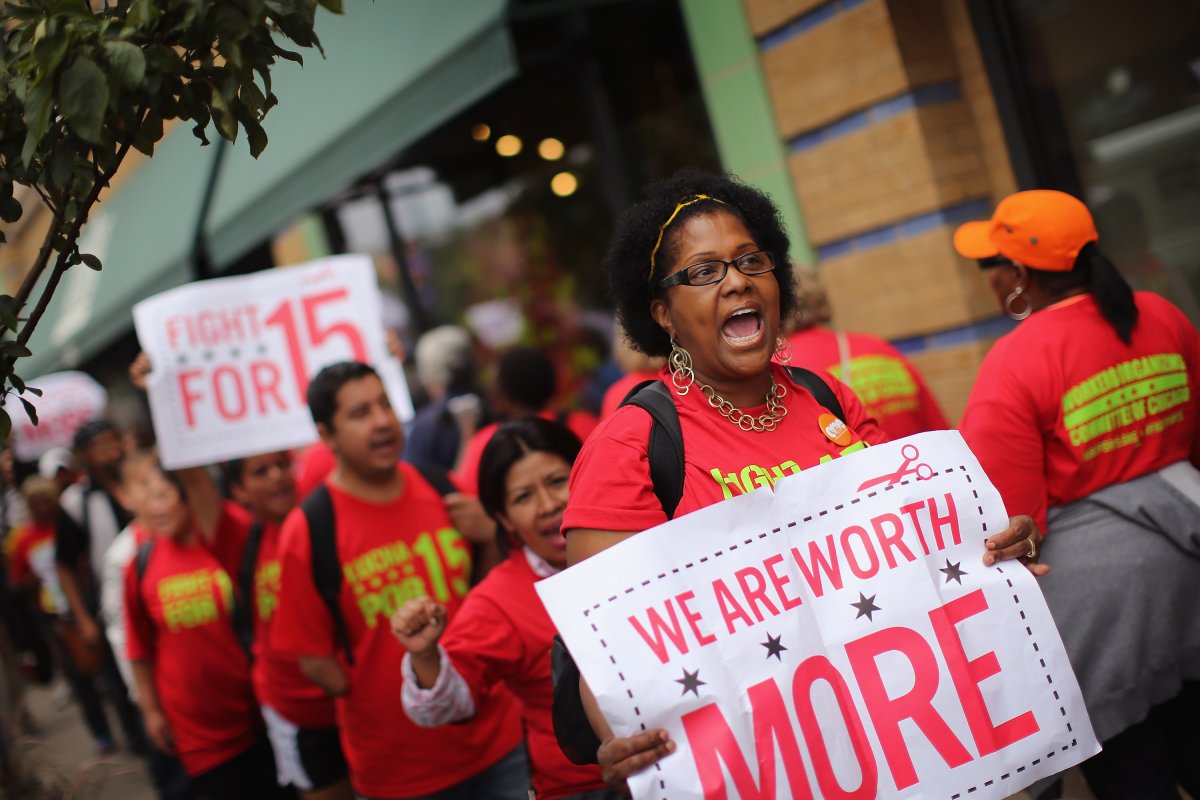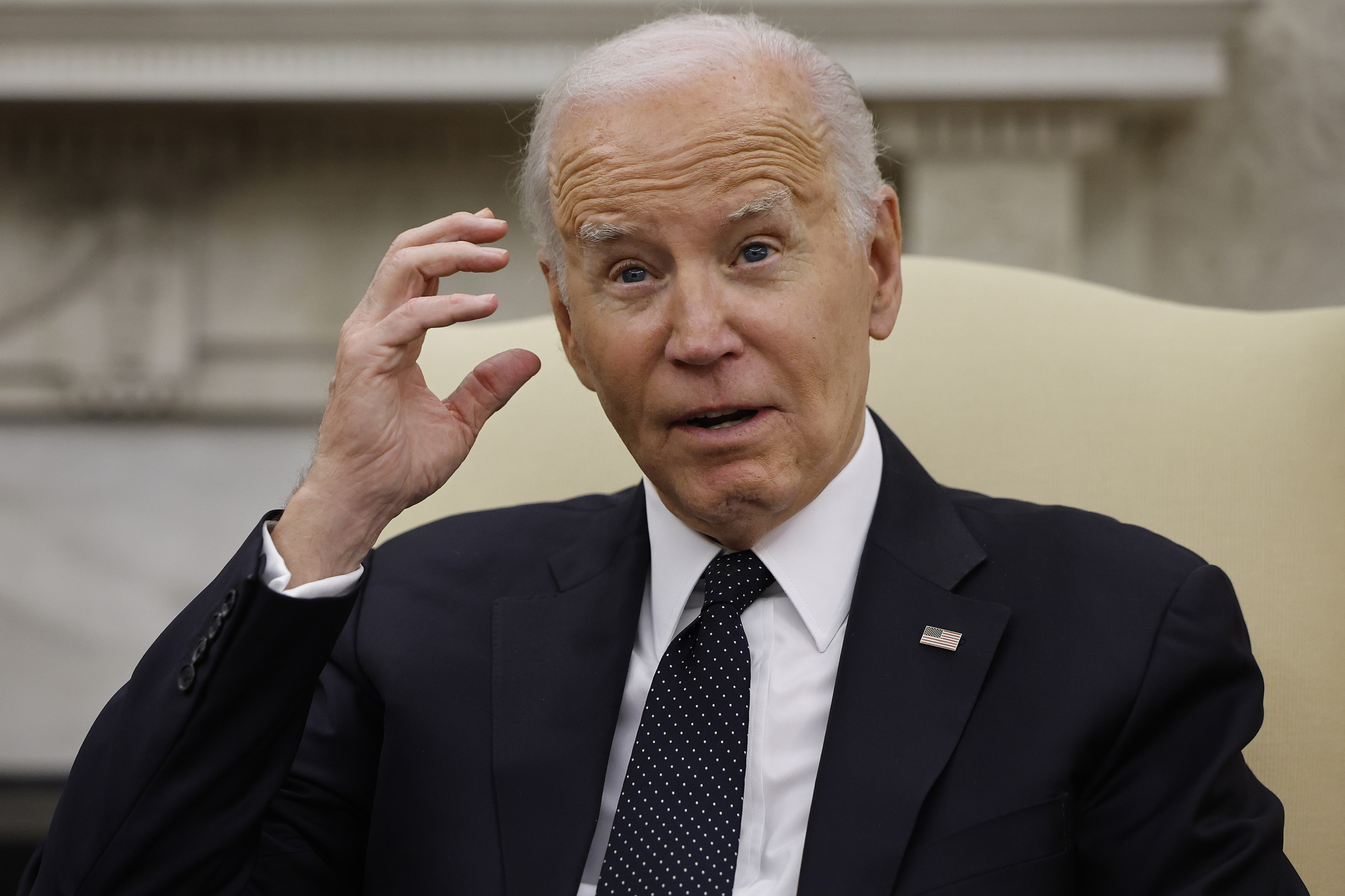This Labor Day, unions and their supporters finally have a few things to celebrate. Thanks to tight labor markets, pandemic-era fiscal policy, and the $15 minimum wage movement, low-wage workers have seen their first inflation-adjusted pay increases since the 1970's. Unions are experiencing historic highs in popularity, especially among young Americans. Workers have won inspiring organizing victories at Amazon and Starbucks. Writers and actors are striking for their share of the streaming economy. Teamsters at UPS just ratified a standard-setting new contract, and UAW members under reinvigorated leadership hope to negotiate a 32-hour week this fall after decades of bargaining on defense. For the first time in a generation, there are new labor policy ideas coming from both the Left and the Right.
But behind these welcome headlines, working Americans still face a generations-long crisis. From the mid-1970's to the beginning of the pandemic, wages stagnated or declined for most workers. Income and wealth were redistributed upwards. The middle class shrank as a percentage of the population. According to American Compass' Cost of Thriving Index, it now takes 62 weeks of median male wages to pay for a middle-class family's food, housing, health care, education and transportation, up from 40 weeks in 1985. Financial precarity—not having routinely positive cash flow, not being able to pay bills on time, not having adequate savings and insurance—is now a problem faced by 69 percent of Americans.
And unions—the only institution in American civil society specifically purposed to advance and protect the economic interests of our working-class majority—now represent only six percent of eligible private sector workers, down from 48 percent in 1946. There are literally more Americans who think that chocolate milk comes from brown cows.
This isn't because American workers don't want unions or representation, but because our broken labor laws, designed for the economy of the 1930's, have functionally stopped enabling collective bargaining and have become a tool to prevent it.
Unless employers agree, unions can only be formed on an opt-in, workplace-by-workplace basis through a months-long government-run election process which employers have every incentive to oppose, and frequently spend years litigating. Many of the most effective tools for organizing and bargaining were outlawed at the behest of the business lobby in 1947. Even today, employers commonly fire union supporters, engage in anti-union surveillance and intimidation, and refuse to bargain in good faith. We're seeing that in real time right now at Starbucks and Amazon.

Our opt-in system of workplace-based representation creates a Rube Goldberg scheme of perverse incentives and perverse outcomes. By design, companies are incentivized to avoid or bust unions and to minimize their bargaining gains. By design, most workers remain unrepresented. By design, unions have no direct way of impacting pay and working conditions outside of the tiny minority of unionized workplaces, no seat at a broader economic policy table and no ability to set industry-wide pay and benefit standards. They're optimized for workplace conflict but simultaneously too small and weak to frequently prevail. And they are too often operated as internally-facing, members-only clubs that have neither the capacity nor the incentive for inclusion, innovation, or growth.
It wasn't always this way. It's not this way everywhere else. And it doesn't have to be this way in the United States today.
Recent research by the OECD and by Center for American Progress Scholar David Madland tells an interesting story. It turns out that when more workers are covered by union contracts, things get better for workers, employers, and national economies. In much of Europe and parts of the global south, most workers are covered by labor agreements bargained at a sectoral or geographic level, not on a workplace-by-workplace basis. These centralized and broad-based labor law systems are predictive of economies with high employment, high productivity, high wages, adequate leisure time for the working class, positive trade balances, and lower levels of inequality.
When all employers in an industry have to meet minimum negotiated standards, unions and collective bargaining start to look a lot more like a "public good" rather than a private benefit for the members of an exclusive union club that's nearly impossible to join. Employers have fewer incentives to undermine unions or workplace standards, while unions can focus their campaigns on raising wages and benefits economy-wide rather than "fighting the boss" on the shop floor, where collaboration often turns out to be a better strategy to solve the daily challenges that occur in any workplace.
Here's my take: Americans want the United States to have a strong and inclusive middle class that anyone can join through their hard work. Americans want a functioning democracy, where everyone can see their stake in the system, even when their favorite candidate or party or issue doesn't prevail. Americans want to reduce the record-high level of economic inequality that we've seen develop over the last almost 50 years. Americans want hard work to pay fairly. Americans want the basics like housing, health care, education, and retirement security to be affordable and within reach without crippling levels of debt. Americans want families with no advanced-degree-holders to nevertheless be able to experience financial security, economic stability, and afford to live in the 21st century. Americans want work be rewarded without consideration of religion, race, gender, sexual orientation, nationality or other factors of identity.
Americans have always wanted their own and everyone's children to be able to look forward to a better life than their parents had.
The only way any of that is going to happen is if majorities of workers wield the collective power of their labor, their pocketbooks, and their votes to lift themselves up and hold both employers and politicians accountable. Instead of thinking of unions and other worker organizations as just other special interest groups, we should all understand that they really are a public good. If workers have no bargaining power and no political power, ultimately businesses will have no customers, and politicians will feel no pressure to govern in the interests of our working-class majority.
Americans don't want our military to protect six percent of our country's population and borders. We don't want our schools to educate six percent of our children. We don't want our utilities to provide electricity or water to six percent of our homes and businesses. We don't want police to enforce six percent of our laws.
And our unions shouldn't represent six percent of our workers.
This Labor Day, let's remember that a successful, inclusive and vibrant labor movement means a successful, inclusive, and vibrant middle class and a successful, inclusive vibrant democracy.
David Rolf is founder and President Emeritus of SEIU 775, a labor union representing long-term care sector workers in the pacific northwest. He is a 30-year labor movement veteran and the author of The Fight for Fifteen (The New Press, 2016).
Uncommon Knowledge
Newsweek is committed to challenging conventional wisdom and finding connections in the search for common ground.
Newsweek is committed to challenging conventional wisdom and finding connections in the search for common ground.
About the writer
To read how Newsweek uses AI as a newsroom tool, Click here.






